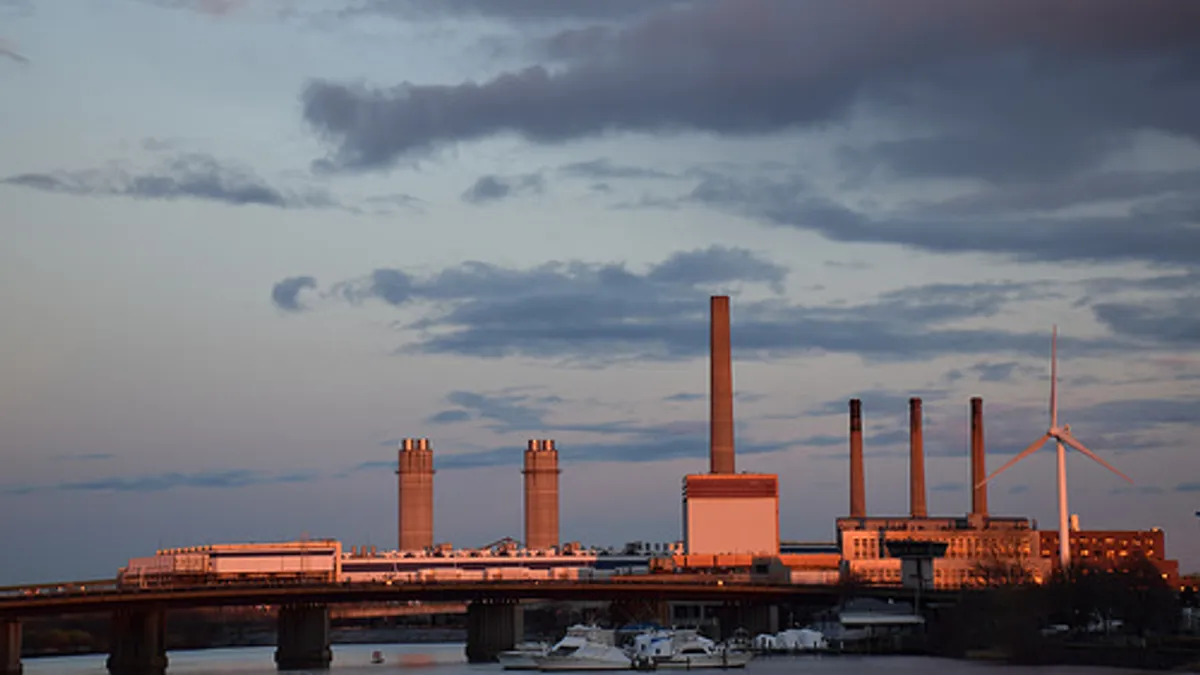Dive Brief:
-
Generators, industrial customers and environmentalists criticized an ISO-NE proposal in comments filed with the Federal Energy Regulatory Commission on Wednesday, writing that the grid operator’s plan to provide cost recovery to an Exelon natural gas plant is overly broad and complex.
-
ISO-NE wants to keep two units of the Mystic Generating Station online due to their financial support for an adjacent liquified natural gas import facility, but critics wrote that would go beyond the grid operator’s current reliability authority and called for the ISO to design a market-based solution to address the issue.
-
Exelon wrote that without cost recovery it would be forced to close Mystic when its current capacity obligations expire in the early 2020s. Two years of cost recovery after those expirations would allow ISO-NE to develop a market solution for fuel security, it wrote.
Dive Insight:
ISO-NE’s cost recovery filing for the Mystic plant opened a new dimension in the ongoing debate over fuel security and reliability in U.S. power markets.
Early this month, ISO-NE asked FERC for a waiver from its market tariff to provide cost recovery for units 8 and 9 at the Mystic plant. If they retire, the grid operator warned, the nearby Everett LNG import facility will likely enter an “economic death spiral” and shut down, threatening the region’s fuel supply in the winter months.
"[R]etirement of Mystic 8 & 9 would cause the ISO to deplete 10-minute operating reserves (a violation of mandatory reliability criteria) on numerous occasions and, further, to instigate load shedding — rolling blackouts — during the New England winters of 2022-2023 and 2023-2024," the ISO wrote.
Critics say the underlying fuel security analysis is unrealistically conservative, and warned that approving cost recovery for the plant would significantly expand the grid operator’s market authority.
“ISO-NE’s unprecedented request would apply ISO-NE’s authority over transmission security in a fuel security context — a significant augmentation of its role and one it previously sought to disavow,” the Environmental Defense Fund wrote in its comments, noting that ISO-NE wrote in a 2010 filing with FERC that “fuel supply issues are not within the planning authority of the ISO.”
Instead of cost recovery, EDF and other critics pushed FERC to direct ISO-NE to design a market-based solution to value fuel security. Mystic unit 8 has a capacity supply obligation until May 2022, the Electric Power Supply Association, a generator trade group, noted, which could give the grid operator time to devise a new solution.
“As the ISO’s petition concedes, the issue at hand is not an immediate reliability concern, and therefore does not warrant the extreme proposed approach which is not contemplated in the ISO Tariff or System Rules, does not comport with FERC [cost recovery] policies or precedent, is and has not been available to any other generation resource in ISO-NE,” EPSA wrote.
Exelon argued that while the ISO sees the plant as necessary, its market tariffs do not support its operation past 2022. The company wants FERC to grant it cost recovery before July of this year, when it will have to decide whether to bid the Mystic units into ISO-NE’s next capacity auction.”
“Under the current rules — the rules that ISO-NE seeks to have waived in this proceeding — Mystic on July 6, 2018 must either commit to unconditionally retire Mystic 8 & 9, or risk being committed to additional Capacity Supply Obligations prior to resolution of Mystic’s recent filing submitting an executed cost-of-service agreement,” Exelon wrote. “Accepting that risk would leave Mystic exposed to both an unknown payment for its services and unknown terms and conditions for providing that service.”
FERC will evaluate the Mystic application amid an increased focus on fuel security. This month, Chairman Kevin McIntyre linked the issue with FERC’s high-profile grid resilience docket.
"Is there such a thing as a recognizable resilience attribute that one can easily, or at least in terms that are manageable, recognize and identify?" he asked. "If the answer to that is yes, which would sure be convenient, then we just need to go about the simple business of figuring out how to compensate it."













